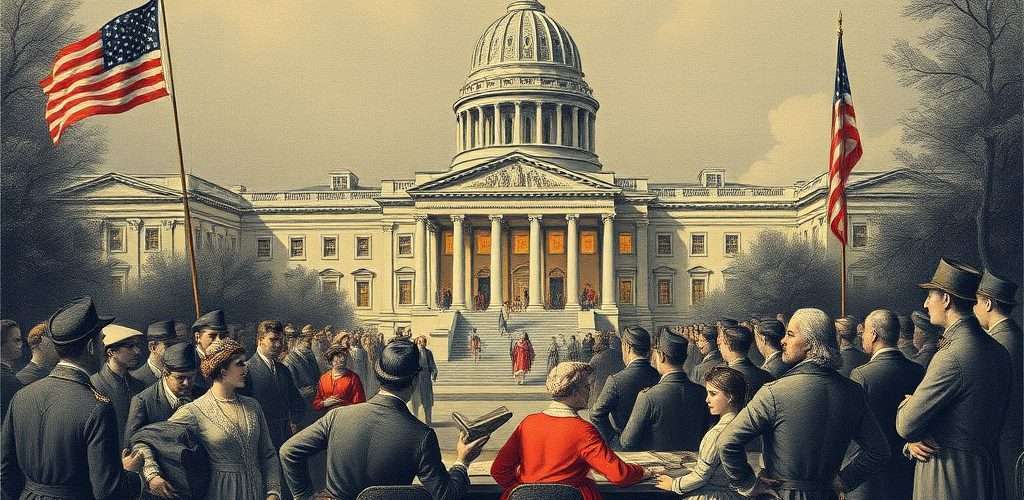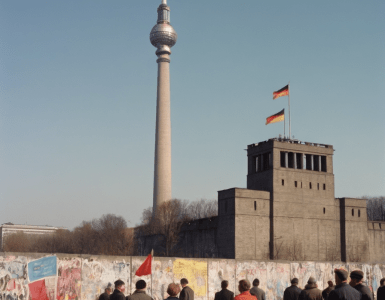Le 11 juin 1776, le Congrès continental a nommé un comité composé de Thomas Jefferson, John Adams, Benjamin Franklin, Roger Sherman et Robert R. Livingston pour rédiger la Déclaration d'indépendance. Ce document essentiel déclare l'indépendance des treize colonies américaines vis-à-vis de la domination britannique et jette les bases des États-Unis d'Amérique.
Vous pouvez aussi aimer
History’s Unexpected Turns: Forgotten Stories and Curious Coincidences
History’s Unexpected Turns: Forgotten Stories and Curious Coincidences History, as they say, is written by the victors. But even the victors sometimes stumble upon unexpected turns, leaving behind intriguing footnotes and curious coincidences largely ignored in our textbook summaries. Let’s dive into a few of these historical “what ifs” and “who knews?” Grab your metaphorical time machine, because we’re about to take a slightly off-the-beaten-path tour through the past. The Day the World Almost Didn’t End (Or Did It?) We all know about the Cuban Missile Crisis, the 13-day standoff that brought the world to the brink of nuclear war. Textbooks focus on the tense negotiations, the brinkmanship, and the eventual removal of Soviet missiles from Cuba. What’s often glossed over is the sheer amount of *luck* involved. Consider this: Soviet submarines were patrolling the waters around Cuba, armed with nuclear torpedoes. These subs were...
9 novembre 1989 - Un tournant dans l'histoire moderne
On November 9, 1989, the world watched in awe as thousands of East Germans crossed and climbed onto the Berlin Wall, joined by West Germans on the other side. This momentous event marked the fall of the Berlin Wall, a powerful symbol of the Cold War that had divided not just a city, but the entire world. The collapse of this concrete barrier signaled the beginning of the end of the Cold War, the reunification of Germany, and a new era in global politics. The Berlin Wall, constructed in 1961, was built by the German Democratic Republic (GDR) or East Germany to prevent mass defections to the West. It became the most visible embodiment of the Iron Curtain, separating the communist Eastern Bloc from the capitalist West. For 28 years, the wall stood as a 155-kilometer concrete scar through the heart of Berlin, topped with barbed wire and guarded by armed soldiers with orders to shoot anyone attempting to cross. The events leading to the fall of the Wall were set in motion by a series of...
Les notes de bas de page inattendues de l'histoire : Une plongée décontractée dans les profondeurs de l'histoire
History’s Unexpected Footnotes: A Casual Dive into the Deep End History, as they say, is written by the victors. But even the victors sometimes forget to mention the quirky sidekicks, the accidental heroes, and the downright bizarre coincidences that shaped our world. Textbooks, bless their hearts, tend to focus on the big, sweeping narratives. But the real fun? The *real* history? That’s in the footnotes, in the whispers between the lines, in the “what ifs” that never quite made it into the official record. Let’s dive into a few unexpected corners of the past, shall we? We’ll skip the usual suspects – the world wars, the revolutions – and delve into some less-discussed dates and events, uncovering some surprising twists along the way. The Great Molasses Flood of 1919: A Sticky Situation January 15th, 1919, Boston. Not exactly a date that screams “historical significance,” right? Wrong. On this day, a massive tank containing 2.3 million...

























Ajouter un commentaire